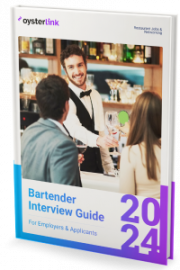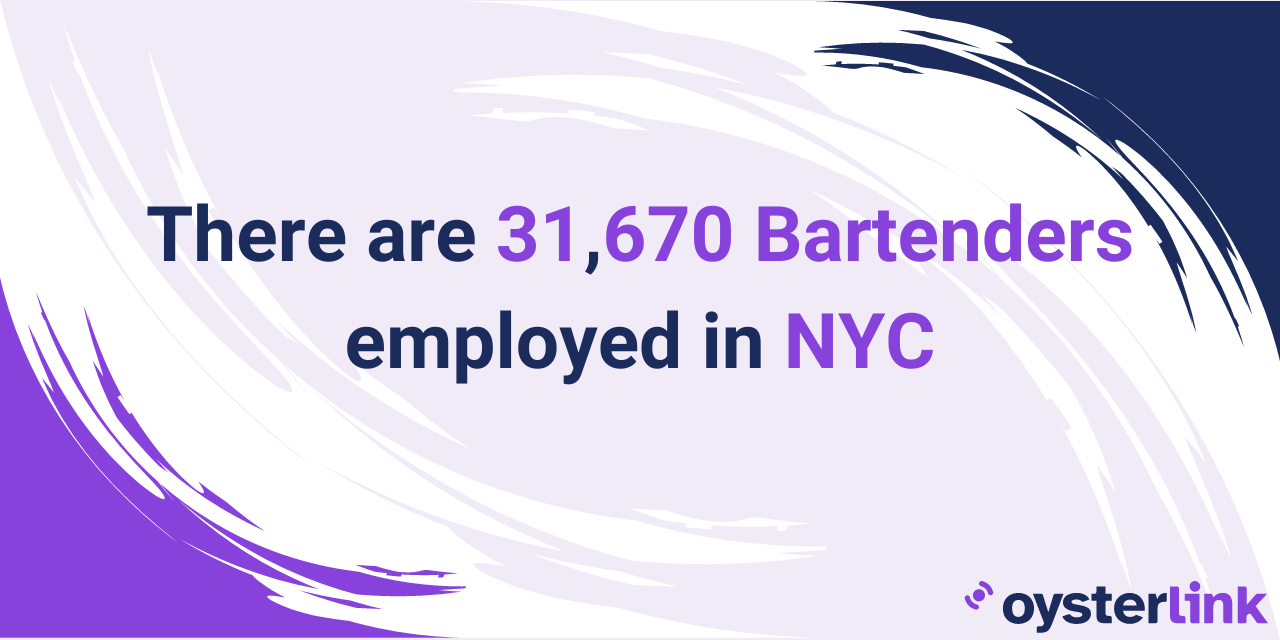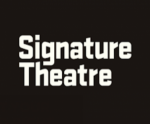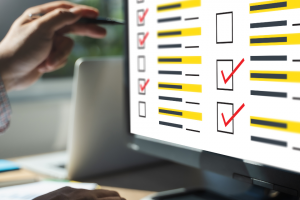Top 10 Part-Time Bartender Jobs in New York City, NY
In preparation for the launch of the OysterLink Jobs platform in December 2024, we’ve selected the top 10 part-time Bartender jobs in New York City, showcasing detailed salary breakdowns, requirements and benefits.


Download the Bartender’s Salary Guide and Career Handbook
- View salaries & industry trends
- Get career advice & insights
Best Part-Time Bartender Jobs in NYC (Hiring Now!)
According to the Bureau of Labor Statistics, New York City currently employs 31,670 Bartenders.

If you’re looking for part-time opportunities in the bartending industry, we’ve hand-picked a selection of the highest-paying positions available in NYC for you to apply to today.
Search for jobs

Bartender

Bartender
Bartender

Event Bartender

Bartender

Beverage Bar Mixologist

Bartender

Bartender

Bartender
Bartender Salary Trends in New York City, NY
According to the Bureau of Labor Statistics (BLS), Bartenders in New York City have an annual average salary of $58,050 per year, or $27.91 per hour.
Compare the average salaries Bartenders make in major U.S. cities:
 Miami
Miami
Annual mean wage
$39,270
Number of Employees
14,410
 New York City
New York City
Annual mean wage
$58,050
Number of Employees
31,670
 Chicago
Chicago
Annual mean wage
$35,630
Number of Employees
23,080
 Los Angeles
Los Angeles
Annual mean wage
$40,080
Number of Employees
22,530
[Source: BLS]
This is 56.5% higher than the national average wage for Bartenders in the United States, which stands at $37,090 annually or $17.83 per hour.
Factors That Affect Bartender Salary in NYC
Several factors contribute to the higher wages for bartenders in New York City.
Firstly, the city’s world-renowned nightlife and tourism industry creates a high demand for skilled Bartenders, leading to increased competition among establishments to attract and retain top talent.
Additionally, the cost of living in New York City is notably higher than the national average, necessitating higher wages to maintain a decent standard of living.
Average Housing Prices in NYC, 2011-2022
[Source: osc.ny.gov]
Bartenders in New York City must contend with sky-high housing costs, and transportation expenses, further justifying the elevated pay scale compared to other parts of the country.
If you are a Bartender in New York City, try out our New York Paycheck Calculator to see what your take-home pay is in this state.
Whether you receive compensation on an hourly basis or a fixed salary, our calculator ensures precise calculation of your earnings.
Paycheck Calculator
Disclaimer: Please note that this paycheck calculator is designed to provide an estimate and should not be considered as professional tax advice. The actual withholding amounts and taxes owed may vary depending on individual circumstances and other factors. For accurate and personalized tax advice, we recommend consulting with a tax professional.
If your gross pay is $74,000.00 per year in the state of New York, your net pay (or take home pay) will be $55,385.89 after tax deductions of 25.15% (or $18,614.11). Deductions include a total of [1] 12.23% (or $9,048.10) for the federal income tax, [2] 5.28% (or $3,905.01) for the state income tax, [3] 6.20% (or $4,588.00) for the social security tax and [4] 1.45% (or $1,073.00) for Medicare.
The Federal Income Tax is collected by the government and is consistent across all U.S. regions. In contrast, the State Income Tax is levied by the state of residence and work, leading to substantial variations. The Social Security Tax is used to fund Social Security, which benefits retirees, persons with disabilities and survivors of deceased workers. Medicare involves a federal payroll tax designated for the Medicare insurance program. As of 2022, Alaska, Florida, Nevada, New Hampshire, South Dakota, Tennessee, Texas, Washington and Wyoming do not levy a state income tax.
Tipping Trends for Bartender Jobs in New York City
Bartenders typically get tips ranging from 15% to 20% of the total bill or about $1 to $2 per drink, which can substantially increase their overall earnings.
Check out the chart below for more insights into the highest-tipping cities in the U.S.
[Source: Toast]
This chart is interactive. Hover your mouse over different parts of the chart to see detailed data.
Bartender Career Outlook
According to the BLS, the job prospects for Bartenders look promising, with an estimated growth rate of 3% from 2022 to 2032.
As a result, there are, on average, 641,300 Bartender positions available annually in the U.S.
Find out how much Bartenders earn across the U.S. states by exploring the map below.
[Source: BLS]
This chart is interactive. Hover your mouse over different parts of the chart to see detailed data.
Is Bartender the Right Role for You?
See if you have what it takes to be a Bartender by taking our quiz below.
Results
#1. Are you familiar with bartending techniques?
#2. Do you have experience with cocktail presentation and garnishing techniques (e.g., flair bartending or using specialty tools for decorations)?
#3. Are you proficient in using bartending equipment and tools, such as shakers, strainers and specialty glassware?
#4. Have you developed your cocktail recipes, and can you adapt existing recipes to create new flavors or variations?
#5. Are you dedicated to maintaining the same quality standards, even during busy or challenging times?
#6. Do you actively seek to expand your knowledge about various spirits, cocktail ingredients and mixology techniques?
#7. How do you feel about late-night hours and long shifts behind the bar?
#8. Do you enjoy working in a fast-paced and sometimes high-stress environment?
#9. How do you handle criticism and feedback about your cocktails?
Legal Requirements for Bartending Jobs in NYC
Bartending in New York City demands strict adherence to specific legal requirements designed to ensure the safety of serving alcoholic beverages.
Prospective Bartenders must familiarize themselves with these regulations to operate within the law and uphold professional standards.
Outlined below are key legal requirements relevant to Bartender roles in New York City:
- Age requirement: The legal drinking age of 21 applies nationwide, while the minimum age to serve alcohol in NYC is 18.
- Licensing requirements: Establishments in New York City must obtain licenses from the New York State Liquor Authority (NYSLA) and adhere to local regulations.
- Legal hours of operation: Sales of alcoholic beverages for on-premises consumption are restricted from 4 a.m. to 8 a.m. on weekdays and from 4 a.m. to 10 a.m. on Sundays.
- Identification verification: Checking identification before serving alcohol is a standard practice.
- Dram Shop liability: Under the New York Dram Shop Law, businesses are prohibited from serving alcohol to visibly intoxicated individuals and may be held liable for damages caused by intoxicated customers to third parties.
- Taxation on tips: Bartenders in New York City must report all tips received during their shifts as part of their taxable income.
Although alcohol server training is not mandatory, the state government strongly recommends the Alcohol Training Awareness Program (ATAP) certification, which many employers require.
Frequently Asked Questions
When applying for Bartender positions, your resume should highlight relevant skills, experiences and qualifications that demonstrate your ability to perform the role.Here are some key elements to include:
- Contact information: Your name, phone number, email address and possibly your LinkedIn profile
- Summary/objective: A brief statement summarizing your experience and highlighting your enthusiasm for bartending
- Relevant experience: Detail any previous bartending experience, including the name and location of the establishments, your job title, and your main responsibilities
- Skills: Specific skills relevant to bartending, such as mixology, cocktail preparation, customer service, knowledge of alcoholic beverages, multitasking and attention to detail
- Certifications: Include any relevant certifications, such as ServSafe Alcohol certification, Training for Intervention Procedures certification or Alcohol Training Awareness Program certification
- Education: Mention any relevant education, such as a high school diploma or GED or additional training or coursework in bartending
- References: You can include references from previous employers or colleagues who can testify to your skills and work ethic
Preparing for a bartending job interview involves a combination of showcasing your skills, knowledge and personality.Here are some tips to help you prepare:
- Research the establishment: Familiarize yourself with the bar or restaurant where you’re interviewing. Understand their atmosphere, menu offerings and target clientele.
- Review bartending basics: Refresh your memory on bartending fundamentals, including common cocktails, drink recipes, glassware and bar equipment
- Be ready to discuss experience: Prepare to talk about your previous bartending experience and highlight specific examples of your accomplishments, such as increasing sales, handling busy shifts or resolving customer complaints
- Anticipate interview questions: Expect to be asked common interview questions related to bartending and practice your responses
- Demonstrate enthusiasm: Show genuine enthusiasm and passion for bartending throughout the interview
Bartenders can advance into leadership positions like Head Bartender or Bar Manager, where they oversee bar operations and staff.
Entrepreneurship is also an option, with Bartenders opening their own bars or cocktail establishments.
Additionally, some may move into hospitality management, event planning or beverage consulting roles.
Bartenders face a variety of challenges in their roles, including:
- High-pressure environment: Bartenders often work in fast-paced and high-stress environments, especially during peak hours.
- Dealing with difficult customers: Bartenders frequently encounter difficult or intoxicated customers who may be rude, demanding or disruptive.
- Physical demands: Bartending can be physically demanding, requiring long hours of standing, lifting heavy bottles and kegs and repetitive motions such as shaking cocktails or pouring drinks.
- Inventory management: Bartenders are often responsible for managing bar inventory, including ordering supplies, tracking stock levels and minimizing waste.
- Time management: Bartenders must juggle multiple tasks, such as taking orders, preparing drinks, serving customers, and cleaning and restocking the bar.
- Maintaining work-life balance: Bartending often involves working late nights, weekends, and holidays which can impact personal and social life.
Employers typically look for Bartenders who possess:
- Strong interpersonal skills
- Excellent customer service abilities
- Proficiency in mixology and drink preparation
- Solid understanding of beverage and alcohol laws and
- regulations
- Capacity to work efficiently in a fast-paced environment
- Teamwork
- Adaptability
- Reliability
Some commonly made cocktails by Bartenders include:
- Mojito
- Margarita
- Manhattan
- Espresso MartiniA
- Aperol Spritz
- Moscow Mule












